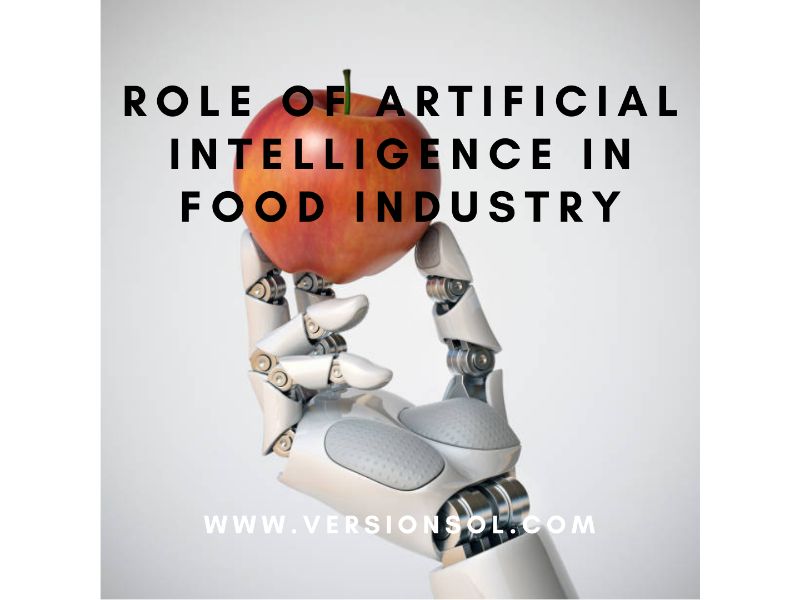Role of artificial intelligence in food industry: To make food manufacturing increasingly successful and motivated. Automation in the food sector employs modern technology such as robotics, smart devices, and Internet of Things (IoT) connectivity. Also Artificial intelligence (AI), analytics, mobility, data processing, and even 3D printing. Shelf life, food safety, consumer satisfaction, and business growth all benefit from advanced automation and intelligent production.
Food analysis is an important aspect of all food production, from large corporations to small, local cottage enterprises. For both academia and industry, robust, efficient, sensitive, and cost-effective techniques are an important research priority.
Future prediction of the artificial intelligence in the food industry
By 2027, the total food automation industry to reach $29.4 billion. This expansion is the result of a number of circumstances. Including the concomitant challenges of expanding populations, inflation, declining agriculture yields, and the climate emergency. Food analysis automation is expanding for similar reasons, but it will also grow as food safety rules and technology improves.
Role of Artificial intelligence in Food safety
Food Safety is critical to our health and survival. Due to the complexity and sophistication of today’s food systems. Maintaining the highest food safety standards while reducing the risk of food. Companies losing millions of dollars in recall costs and possible reputational damage necessitates the use of cutting-edge technologies to protect consumers from foodborne illness.
To prevent food safety hazards and minimize risks and recalls. Food safety management systems (FSMSs) provide an integrated strategy that includes protocols, training, and monitoring.
To improve the effectiveness and efficiency of FSMSs. It is a must to improve the usage of lagging indicators with preemptive tools. Artificial Intelligence (AI) allows for a proactive data-driven strategy by leveraging data. To generate indicators that identify issues before they become leading indicators.
Focus on AI as an enabler of technology
Food analysis automation, like all industrial automation, relies on the integration of several technologies. To convert physical data into data that can be handled by computers, digital equipment and sensors are required. Latest engineering and robotics are helping to develop physical machines that interact with food samples on a nanoscale level.
Food analysis automation is no exception to AI as a crucial enabling technology for industrial automation. AI uses computer instructions (algorithms) to make computers function intelligently. Such as by learning from data and modifying actions by machine learning. However, significant obstacles must be overcome for the majority of farmers, especially on small and medium-scale farms.
Furthermore, It is necessary to upgrade security technologies on daily basis. We believe that the use of IoT solutions in smart agriculture is unavoidable and will surely increase productivity. As well as supply clean and green foods, promote food traceability, minimize human labor, and improve production efficiency.
